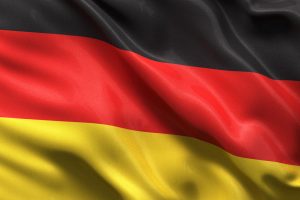Russia’s invasion of Ukraine may be a matter of deep concern to the international community but not surprising at all. Didn’t Vladimir Putin’s Russia annex Ukraine’s Crimean Peninsula in 2014? Wasn’t there continuing tension between the Kremlin and Kyiv which intensified after Ukraine became eager to be a part of Nato in the recent past?
The Kremlin wasn’t comfortable with the shadow of America’s wings across its boundary. And the rest of the world has little control over Putin. Ukraine was just a time bomb, destined to explode at the opportune moment for Putin. While the international community would strive to instate ‘peace’ in Ukraine and Europe, anxiety regarding east Asia is growing.
Advertisement
Some experts even thought that Russia’s Ukraine invasion and China’s Taiwan invasion might even be synchronized to further destabilize the West. There has been wide speculation over China’s intentions towards Taiwan in the recent past. Would China now follow a “Today Ukraine, Tomorrow Taiwan” model?
Boris Johnson’s political future may be in turmoil, but he was quick to spot it: “If Ukraine is endangered, the shock will echo around the world. And those echoes will be heard in east Asia, will be heard in Taiwan.” Donald Trump criticized Joe Biden for being weak in the Ukraine case. “Taiwan is next, and you’re going to see the same kind of thing,” Trump foresees.
In a recent interview, Trump predicted Xi Jinping would move to Taiwan after the Beijing Winter Olympics. The relationship between China and Russia has certainly become cosier in the recent past. Putin was a guest at the Beijing Winter Olympic opening ceremony and both nations have stated that the “Cold War mentality” should be abandoned. Their joint declaration proclaimed “cooperation with no limit”.
In fact, Xi described Putin as “my closest foreign colleague and my best confidant.” Understandably, Taiwan is nervous about the possibility that Beijing may take advantage of the Ukraine crisis and the distracted West to intensify pressure on the island. Predictably, Taiwan has thrown its weight behind US-led sanctions on Russia – it opposed any unilateral change to the status quo by force or coercion.
Taiwan also increased its alert level in the Taiwan Strait, for obvious reasons. “[I]n the face of foreign forces intending to manipulate the situation in Ukraine and affect the morale of Taiwanese society, all government units must strengthen the prevention of cognitive warfare launched by foreign forces and local collaborators,” Taiwanese President Tsai Ing-wen said.
“China may think about using military action against Taiwan at any moment, and we need to be prepared for that,” Taiwan Foreign Minister Joseph Wu told Britain’s ITV News. However, that may not happen at the moment. Taiwan and Ukraine are fundamentally different in terms of geostrategy, geography, and international supply chains, Tsai also believes. And Xi’s primary focus now may be preparing for a tricky once every-half-decade congress of the ruling Communist Party this year, where he will cement a historic third term in office.
Officials in Taiwan also believe that the People’s Liberation Army lacks the capabilities to guarantee the success of any attack at the moment. It’s difficult to predict China’s intentions though. China views Taiwan as part of its “one China” policy and is maintaining its demand over Taiwan by stating: “Taiwan is not Ukraine. Taiwan has always been an inalienable part of China. This is an indisputable legal and historical fact.”
China thinks that Ukraine is a sovereign state and Taiwan is not a full UN member but a unique polity; it is seen as a renegade province by Beijing. Of course, China has been increasing its military activity in regions near Taiwan over the past couple of years amid rising tensions with America. But what would the US do if China attacks Taiwan? Unlike Ukraine, which is not an official member of Nato, Taiwan certainly has the backing of Washington if attacked.
Taiwan is strategically very important for America, especially when the Chinese dragon is expanding its footprint globally. More than five years ago, on 2 December 2016, President-elect Trump made a telephone call to Taiwanese President Tsai Ing-wen – a first-time event after 1979. Moreover, Trump thanked ‘the President of Taiwan’ after this telephone call. Beijing was not quite happy, for sure. But it was a trailer of America’s attitude towards Taiwan in the Trump regime.
Biden’s approach in handling Taiwan is not largely different, and it is expected that he would also back Taiwan against any possible Chinese attack. The US approved a $100 million sale of military equipment and services to Taiwan in February. “We will uphold our commitment under the [Taiwan Relations] Act, we will continue to support Taiwan’s self defense, and we will continue to oppose any unilateral changes to the status quo,” a White House spokesperson said last October. Again, is Russia’s Ukraine invasion really helping China decide its strategy for Taiwan? Maybe.
Ukraine is probably serving as a laboratory experiment for China to understand how Western countries may react to a Chinese attack on Taiwan. Will the reaction be confined within the domain of issuing statements, warnings, imposing sanctions, and maybe bolstering arms supply with anti-tank weapons, as in the case of Ukraine? Or would the West, particularly America, fight diligently to resist the Chinese dragon? These are important questions for Taiwan, for China and for the world. The world is anxious.
American author Ted Halstead’s book ‘China Invades Taiwan’ was published in November 2021. It addresses some such pertinent questions. How far would America go to protect Taiwan from Chinese invasion? Would it trigger a nuclear war? How much would Japan be ready to involve itself in combat for the first time since WWII? What would Russia’s role be in case China invades Taiwan? Historically, the strategic partnership between Russia and China had proved to be costly for Beijing.
In 1950, Joseph Stalin’s Soviet Union encouraged North Korean aggression to unify the Korean Peninsula, and Mao Zedong’s China supported it. But it proved to be very costly for China – it missed the opportunity to bring Taiwan under control. US President Harry Truman declared that “in these circumstances the occupation of Formosa by Communist forces would be a direct threat to the security of the Pacific area.” And President Truman ordered the Seventh Fleet to patrol the Taiwan Strait.
Some experts believe that China might have made the same mistake in the Russian invasion of Ukraine. And history would tell that in the 1950s, Nikita Khrushchev withdrew all assistance to China’s nascent industrial development because Beijing refused to become a junior partner of Moscow in political and military terms.
Also, Putin’s decision to recognize the so-called Donetsk and Luhansk People’s Republics as “independent” states also sets a dangerous precedent for China. For it paves the way for other countries such as the US to recognize Taiwan as an independent country. And will China stop if it wins in Taiwan? Or will it begin to eye the over 4,000-kilometer-long border it shares with Russia? These will be important concerns for the Kremlin, for sure. In his book, Halstead also discussed such possibilities.
The spectre of history would definitely haunt both Beijing and Moscow in their strategic yet unnatural relationship. Shades of uncertainty would remain over Taiwan though.
(The writer is Professor of Statistics, Indian Statistical Institute, Kolkata.)











